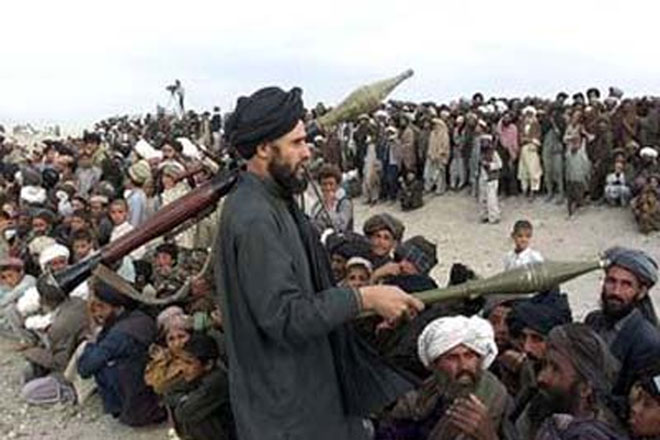The Taliban on Wednesday condemned an Afghan government decision to ban live media coverage of Taliban attacks, saying it violated freedom of speech, DPA reported.
The Afghan government announced Tuesday that it planned to ban live coverage of the attacks because it had evidence that the Taliban was using it to direct its fighters on the ground during ongoing strikes and because it emboldens other militants. The announcement came after an attack Friday in Kabul, in which Taliban militants killed 17 people, including 11 Indians and Westerners.
The government's decision sparked criticism by Afghan and international news organizations as well as Afghanistan's main Western supporters.
The Taliban movement, which banned television and any images of living things during its rule of Afghanistan, joined the chorus of criticism Wednesday and called the move "an action against the recognized principles of freedom of speech."
"By imposing the ban on the coverage of independent news organizations, the puppet government tries to hide its failure in face-to-face fights with the mujahedin in all corners of the country," said a Taliban statement posted on its website.
During its reign from 1996 to 2001, the Taliban also banned music, cinemas, internet and all kinds of games, including kite flying. The ultra-Islamist regime closed all girls schools while women were not allowed to be seen in public unless covered in long veils and accompanied by male members of their families.
Today, more than eight years after the ouster of their regime in a US-led invasion, the militant group has drastically changed its approach. It has its own internet site, where dozens of videos from its attacks on NATO and Afghan forces are available, while its spokesmen often call local and international media to provide comments and news of attacks.
Afghan presidential spokesman Waheed Omar argued Tuesday that the ban would protect journalists and civilians, but Afghan journalists and human rights organizations deemed the move as censorship.
"From these kinds of comments and actions, ... I feel the smells of censorship and dictatorship," said Abdul Hameed Mubarez, head of the Afghan National Journalists Union.
Richard Holbrooke, the special US envoy for Afghanistan and Pakistan, also said the ban was an issue of "legitimate concern."






